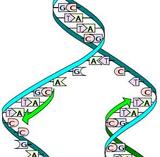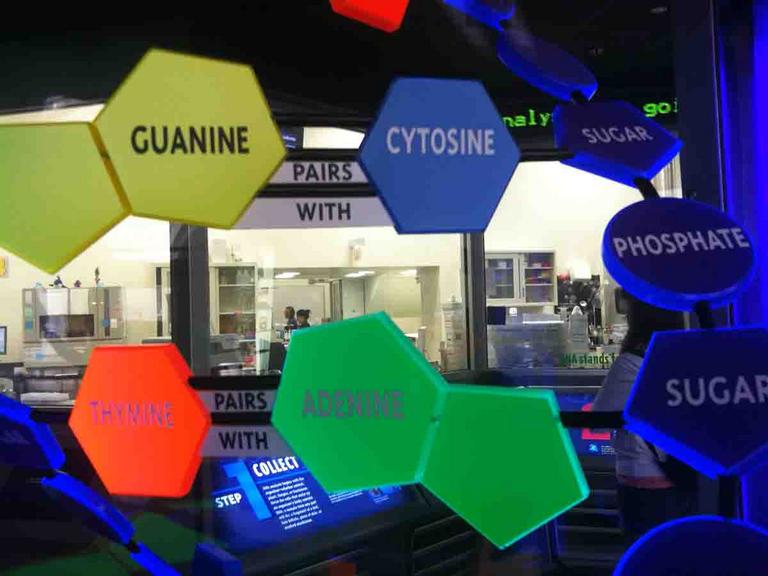 | ||||
Molecular Genetics: DNA Replication
Main Page
Virtual Biology Classroom of Science Prof Online
Genetics: DNA Replication Lecture Materials
These
are the DNA Replication Lecture materials of the Virtual Cell
Biology Classroom. The resources below are used to supplement an actual
college cell biology course.
Page last updated 2/2016
 | ||||||
SPO VIRTUAL CLASSROOMS
LEARNING OBJECTIVES
- What is DNA made of? Know the structural components.
- Understand the process of replication. (Don’t let the brief sentence fool you; this is a lot of complex info. Make sure you understand it to the level that was presented to you in the lecture PPTs).
- What does semi-conservative replication mean?
- Explain how the DNA molecule is antiparallel.
- How does the antiparallel nature of DNA affect replication?
- What is a replication bubble?
- What is the difference between the lagging and the leading strand of DNA?
The DNA Replication Lecture materials include:
- list of learning objectives
- PowerPoint lecture
- homework assignment
- "class note" articles
- practice test & review questions
Model of DNA structure at Chicago's Field Museum
- Bio Rad GTCA Song musical advertisement for SsoFast™. Also useful for learning about enzymes.
- Genetic - song by Sonic Youth
REQUIRED READINGS
Here is what you need to read, in addition to the PowerPoint, to master this topic. Check Moodle for additional readings.
- Deoxyribonucleic Acid: What Is DNA?
- Genetic Replication: Copying of DNA
- Nucleic Acid Function: Replication, Transcription & Translation
- Nucleotides & Nucleic Acids: ATP, RNA & DNA
PRACTICE TEST & REVIEW QUESTIONS
These multiple-choice / matching practice test questions and essay review questions are designed to help you better understand the material from this lecture.
MORE DNA REPLICATION LINKS
- DNA Structure Cell Biology Animation from John Kyrk
- Build a DNA Molecule from University of Utah
- “That Spells DNA” song by Jonathan Coulton.
- DNA Replication animation and review questions.
- DNA Replication step-through animation by John Kyrk.
 | ||||
Science Prof Online
has several
Virtual Classrooms
including:
(15 weeks)
(8 weeks)
(8-weeks)
(16 weeks)
WHICH GENETIC TRAITS DO YOU HAVE?
 | ||||
LECTURE POWERPOINT
Versions of DNA Replication PPT:
- Student's DNA Replication PowerPoint Show
- Student's DNA Replication PowerPoint PDF Printout
Printing: The best way for students to print out the PowerPoint Show is to download the PDF version. Select Print, and, when the Print screen comes up, go to the Print Handling options. Under Page Scaling, select "Multiple pages per sheet", Under Pages per sheet, select "2". That uses up less paper, placing two slides on each page.
DNA REPLICATION HOMEWORK
Word document of a single essay question given to students at the end of lecture. This tool helps the students review the main messages of the lecture while allowing the instructor to assess the class' understanding of the material.




